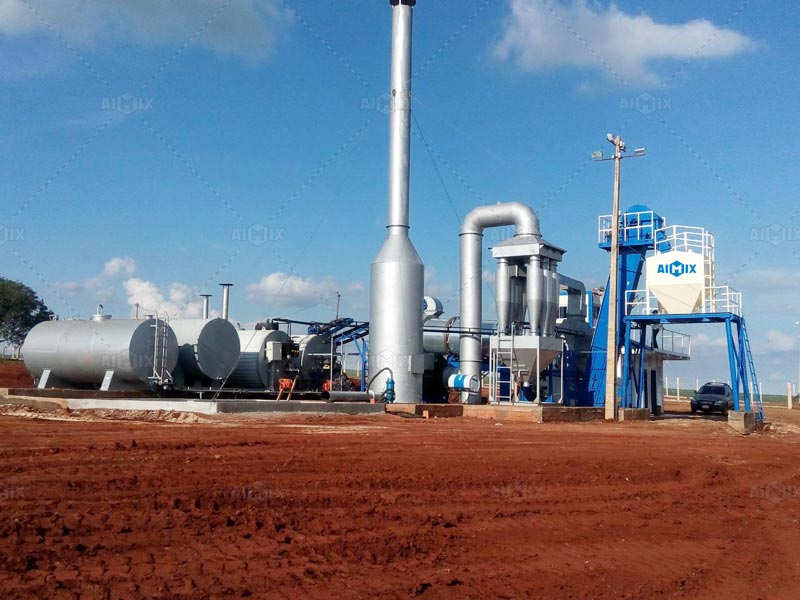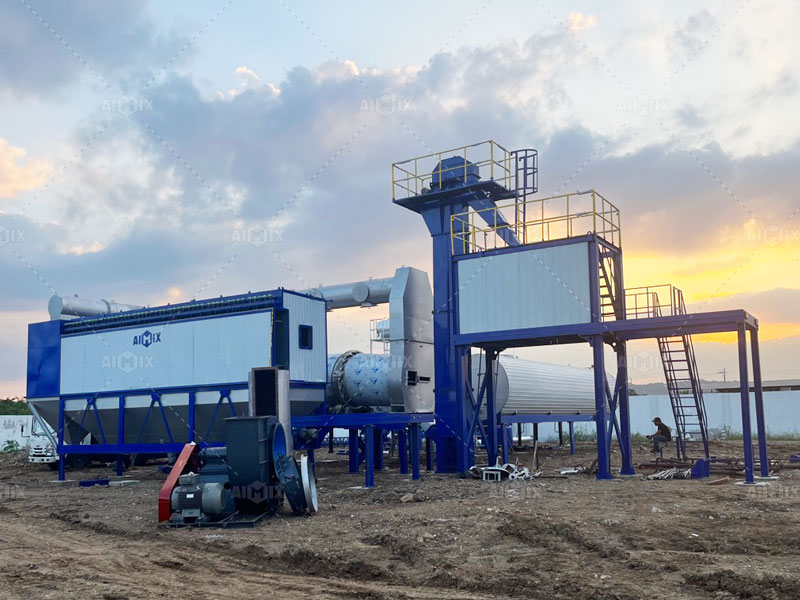
In today’s competitive construction environment, small and medium-sized contractors often face challenges in balancing efficiency, cost control, and project deadlines. For road maintenance and small-scale infrastructure projects, intelligent mobile asphalt plant solutions are transforming how contractors operate. These plants combine advanced technology with portability, making them ideal for companies that need reliable asphalt production without the heavy investment and logistical constraints of traditional fixed facilities.
For years, larger companies had an advantage thanks to their access to stationary asphalt facilities. However, the introduction of intelligent portable asphalt plant(planta de asfalto portatil) models has leveled the playing field. Small contractors can now transport their own equipment to project sites, produce asphalt on demand, and avoid costly delays associated with material delivery.

The benefits go beyond mobility. Intelligent controls allow operators to monitor production data in real time, optimize fuel consumption, and ensure consistent asphalt quality. This is particularly valuable for smaller businesses that need to maximize every resource while meeting industry standards. These systems also facilitate compliance with local specifications and reporting requirements by storing production records and mix recipes centrally.
Modern intelligent systems provide dashboards and mobile access that show material ratios, temperatures, and output metrics. Managers can monitor multiple sites from a central office, set alarms for off-spec conditions, and adjust parameters remotely. This reduces the need for on-site specialists and speeds up corrective actions when problems occur.
Automated batching, weighing, and mixing sequences reduce operator dependency and human error. Where teams previously required several experienced technicians to manage a batch plant, an intelligent asphalt mixing plant(planta mezcladora de asfalto) can be operated by a smaller crew with the support of intuitive controls and guided workflows. Labor savings help lower operating costs and simplify scheduling.
Sophisticated burner management and optimized drum design lower specific fuel consumption. Many intelligent units include programmable combustion controls that maintain stable temperatures while minimizing fuel burn. In regions where emissions are regulated or where fuel logistics are expensive, these efficiency gains materially reduce per-ton production costs.
Predictive maintenance modules analyze vibration, temperature trends, and usage cycles to forecast part wear and maintenance windows. Early alerts prevent catastrophic failures and reduce unplanned downtime. For small contractors, maximizing plant availability is critical—downtime on a mobile unit often means lost contracts or penalties on time-sensitive jobs.
Intelligent plants can operate in batch or continuous drum modes depending on project needs. A drum mix asphalt plant(planta de asfalto continua) configuration offers continuous production for smoother operation on longer runs, while batch-capable mobile units provide precise recipe control for specialized mixes, such as polymer-modified or wet-stored recycled asphalt.
Municipal road maintenance often comes in short contracts that require fast mobilization. Having an intelligent mobile asphalt plant onsite allows teams to produce fresh mix when needed, improving compaction and reducing the frequency of rework. This is especially useful for patching programs and localized resurfacing where consistent small batches are preferred.
For contractors serving commercial clients, the ability to produce tailored mixes on-site reduces dependency on external suppliers. This results in faster delivery, tighter quality control, and better client satisfaction. The modular footprint of many portable units makes them suitable for tight urban sites or constrained commercial lots.
Remote projects often face long transport routes and limited local supply. A trailer-mounted or skid-mounted portable asphalt plant brings production capacity to the work area, cutting haul distances and preserving mix temperature. This is particularly advantageous in mountainous or rural regions where road access is limited.

Traditional stationary asphalt mixing plant facilities are engineered for high throughput, but they demand significant capital, land, and civil works. For small contractors, these requirements are rarely practical. Intelligent mobile units trade peak capacity for flexibility, offering rapid setup, lower initial investment, and the ability to follow work across multiple short-term contracts.
When evaluating options, contractors should consider lifecycle costs—not just the purchase price. Intelligent features that save fuel, reduce labor, and prevent downtime often pay for themselves over the life of the equipment. Likewise, the residual value of a mobile plant is typically higher because it can be redeployed to new projects or sold more easily than a fixed installation.
Estimate your average and peak daily tonnage and choose a model with modest headroom to handle surges. Over-sizing leads to lower utilization and higher unit costs, while under-sizing creates bottlenecks during peak demand.
Look for intuitive HMI interfaces, robust remote monitoring, and a supplier that offers operator training and rapid spare parts delivery. Strong after-sales support dramatically reduces time to competence and keeps the plant productive across many contracts.
Ask suppliers for expected fuel consumption per ton, recommended wear part lifetimes, and mean time to repair. These metrics are essential for building an accurate cost-per-ton model and comparing alternatives objectively.
Intelligent mobile asphalt plant technology is leveling the competitive field for small and medium contractors by providing on-demand, high-quality asphalt production that is portable, efficient, and easier to manage. Whether using a compact portable unit or a continuous drum mix asphalt plant, contractors can reduce labor needs, save fuel, and minimize downtime through automation and predictive maintenance. By focusing on total cost of ownership and prioritizing systems that include strong remote diagnostics and user-friendly controls, small contractors can significantly improve margins, deliver more consistent pavement quality, and expand the range of projects they can undertake.